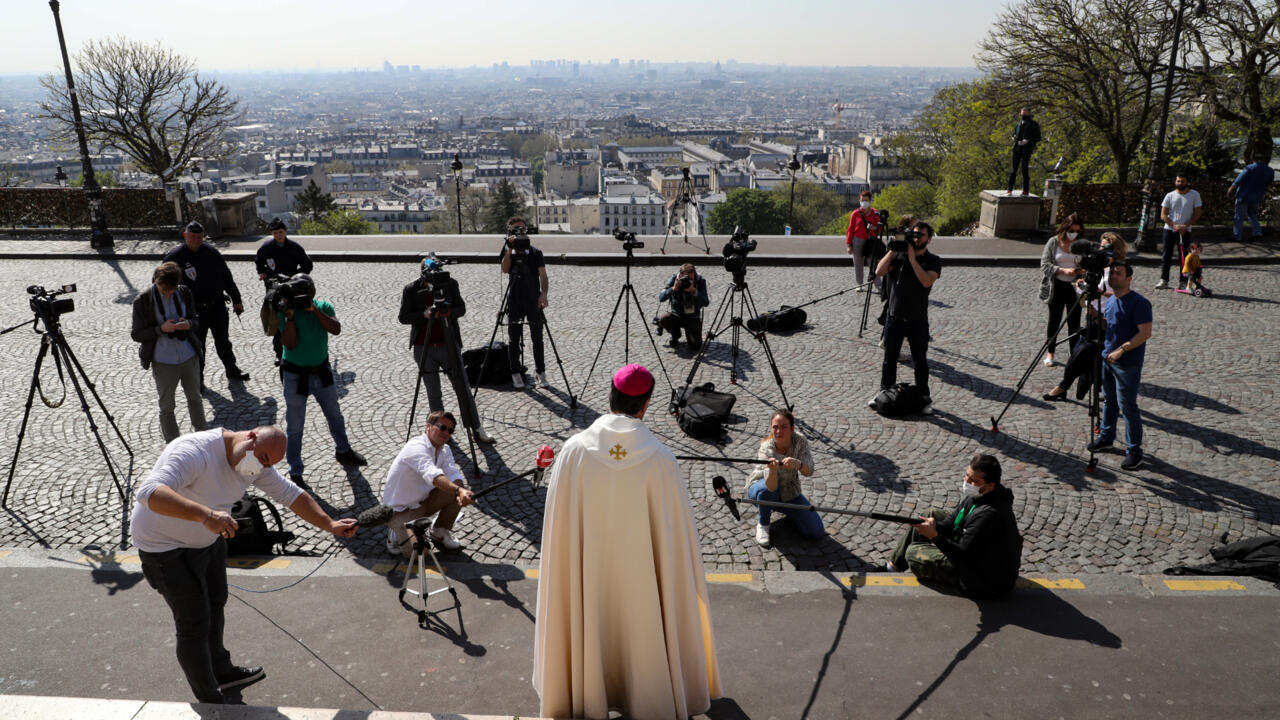How did the media deal with the pandemic? (Replay)
By: Frédérique Lebel
During the months of confinement, and after, they ensured access to this essential information about the disease. They have also maintained these links that connect us in societies without benchmarks.
Publicity
How the media weathered the Covid-19 test
This is what we are going to see with some emblematic situations starting with the BBC, the British Broadcasting Corporation, the large British public radio and television group. Before the pandemic, the public service suffered the wrath of the conservative government of Boris Johnson, which was already announcing drastic budget cuts. And then, the epidemic went through there. The Beeb or Auntie, as the English affectionately call it, has become indispensable, and has seen its TV audiences skyrocket by 44%; Will this be enough to guarantee its future? Not so sure. In London, by Marie Billon.
Another landscape in Hungary, where Viktor Orban's authoritarian government took the opportunity of Covid-19 to further restrict press freedom, through a new article of the Criminal Code. Now anyone who spreads false information about the virus faces up to five years in prison. More than worrying in a country where the government regularly treats journalists as "liars" or "left activists". In Budapest, Florence la Bruyère wanted to understand the consequences of this new law.
And Russia is badly placed in the press freedom ranking, 149th out of 180 in the world rankings. With the end of confinement, it is indeed a media UFO that is coming out of the game. The cultural and educational site Arzamas has captured an unprecedented audience: 9 million views for example for a youtube video on ancient Rome. Need to change your mind and recharge your batteries. In Moscow, Étienne Bouche.
And how has our partner, the French weekly Courrier International, weathered the last few months of the crisis? Ingrid Therwath explains that website traffic has doubled and that paper sales have jumped 23% compared to last year (2019).
In this week's Europe pages, an article on Greece which has managed the health crisis well, but which must now face an economic crisis.
An alliance of five European countries to spy on encrypted messages from the great powers.
And a little visit to Morecambe, a seaside resort with old-fashioned charm.
And we end with the music chronicle of Vincent Théval who introduces us to Matt Eliott, an Englishman who is ultimately very European.
(Replay of June 12, 2020)
Newsletter Receive all the international news directly in your mailbox
I subscribeFollow all the international news by downloading the RFI application
google-play-badge_FR- Coronavirus
- Greece
- Hungary
- Media
- United Kingdom
- Health and medicine
- Russia
- France
- Journalism
On the same subject
Media Workshop
The media and the “world after”, with economist Julia Cagé
Media Workshop
How the French media are trying to adapt to the coronavirus
Media Workshop
Media, innovators: when there is strength in the midst of the Covid-19 pandemic

